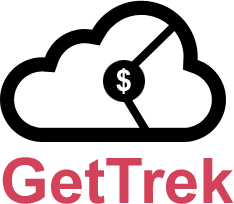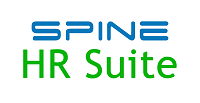Description

HROne

Payroo Payroll
Comprehensive Overview: HROne vs Payroo Payroll
HROne Overview
a) Primary Functions and Target Markets
HROne is a comprehensive Human Resource Management System (HRMS) designed to streamline various HR-related tasks and processes in organizations. The primary functions of HROne include:
- Payroll Management: Automating and simplifying the payroll process.
- Attendance and Leave Management: Tracking employee attendance and managing leave applications.
- Recruitment and Onboarding: Handling job postings, applicant tracking, and onboarding processes.
- Employee Self-Service: Enabling employees to manage their profiles, apply for leave, and access payslips.
- Performance Management: Facilitating performance appraisals and feedback.
- Data Analytics and Reporting: Providing insights and reports on HR metrics.
Target Markets: HROne primarily targets small to medium-sized enterprises (SMEs) and larger organizations across various sectors that seek to digitize and optimize their HR functions.
Payroo Payroll Overview
a) Primary Functions and Target Markets
Payroo Payroll is an online payroll software designed to assist businesses in managing their payroll processes efficiently and accurately. The primary functions include:
- Payroll Processing: Automating payroll calculations, tax deductions, and payments.
- Real-Time Information (RTI) Compliance: Ensuring compliance with tax regulations by submitting data to HMRC in real-time.
- Payslip Generation: Producing digital or printed payslips for employees.
- End-of-Year Reporting: Filing necessary end-of-year reports and documents.
- Employee Management: Maintaining employee records pertinent to payroll.
Target Markets: Payroo primarily targets small businesses and startups in the UK that require a straightforward payroll solution that ensures compliance with local laws.
b) Market Share and User Base
- HROne: With a broad range of features, HROne has established a significant presence among SMEs and large enterprises looking for an all-in-one HR solution. However, specific market share figures might be proprietary and not publicly disclosed.
- Payroo Payroll: Payroo focuses on the UK market and holds a niche position catering to small businesses that need affordable and easy-to-use payroll solutions. The exact market share might be smaller compared to large-scale payroll providers but significant within its target segment.
c) Key Differentiating Factors
-
Scope and Functionality:
- HROne offers a comprehensive suite of HR functions beyond payroll, addressing multiple aspects of human resource management.
- Payroo Payroll focuses predominantly on payroll processing and compliance, making it a more specialized tool for businesses that need payroll-specific solutions.
-
Target Audience:
- HROne is suitable for organizations seeking an integrated HR management system that covers various organizational needs beyond just payroll.
- Payroo Payroll appeals to small businesses and startups primarily concerned with managing payroll efficiently and complying with UK regulations.
-
Geographic Focus:
- HROne has a broader geographic appeal suitable for various markets but not limited to any region.
- Payroo Payroll is specifically tailored for the UK market, ensuring adherence to local tax requirements and payroll practices.
-
Product Complexity and Price:
- HROne tends to offer a more complex and feature-rich solution, which might come at a higher cost and require some implementation effort.
- Payroo Payroll offers a simplified, cost-effective payroll solution that is quick to implement and easy for small businesses to adopt.
Overall, the choice between HROne and Payroo Payroll would depend on the business needs concerning HR and payroll scope, as well as geographic and compliance considerations.
Contact Info

Year founded :
2016
+91 99587 03244
Not Available
India
http://www.linkedin.com/company/hronecloud

Year founded :
Not Available
Not Available
Not Available
Not Available
Not Available
Feature Similarity Breakdown: HROne, Payroo Payroll
As of my knowledge cutoff date in October 2023, here’s a general feature similarity breakdown for HROne and Payroo Payroll. It's important to verify with the latest sources if there have been updates since then.
a) Core Features in Common
Both HROne and Payroo Payroll offer essential payroll processing functionalities, although each may have different approaches in terms of user interface and user experience. Their common core features typically include:
-
Payroll Processing: Both platforms allow for the automated calculation and distribution of employee salaries, including tax deductions and benefits calculations.
-
Compliance and Tax Management: They help ensure compliance with local tax regulations and provide assistance in filing tax-related documents.
-
Employee Self-Service: Both systems offer portals where employees can access their pay stubs, tax forms, and update personal information.
-
Reporting and Analytics: Each platform provides reporting tools to help businesses analyze payroll expenditures and trends.
-
Direct Deposit: Both systems support direct deposit features, allowing employees to receive their payments directly into their bank accounts.
b) User Interface Comparison
The user interfaces of HROne and Payroo Payroll, while serving similar functions, could differ significantly in design and functionality. Since UI preferences can be subjective, here’s a general comparison based on typical design principles:
-
HROne: Known for a more comprehensive HR Management System (HRMS) approach, HROne might offer a more integrated experience across various HR functions. It typically features a robust and intuitive UI designed to facilitate a wide range of HR activities beyond payroll.
-
Payroo Payroll: Generally focused more narrowly on payroll tasks, Payroo may have a simpler, more streamlined interface that aims to provide ease of use for payroll-specific operations, appealing to smaller businesses or those seeking straightforward payroll solutions.
c) Unique Features
-
HROne:
- Comprehensive HR Solutions: Beyond payroll, HROne often includes extensive HR management features like recruitment, attendance, performance management, and employee engagement tools.
- Mobile App: Offers a mobile app to support HR activities on the go.
-
Payroo Payroll:
- Focus on SMEs: Often geared towards small and medium-sized enterprises, Payroo might cater specifically to the needs of smaller businesses with simple and efficient payroll capabilities.
- Cloud-Based Solution: Emphasizes a cloud-based approach for easy access and integration with other business software.
Ultimately, the choice between HROne and Payroo Payroll will heavily depend on the specific needs of a business, such as the size of the organization, the complexity of its payroll processes, and whether a broader HR solution is required. Always consult up-to-date reviews and conduct trials or demonstrations where possible to make the most informed decision.
Features

Not Available

Not Available
Best Fit Use Cases: HROne, Payroo Payroll
HROne and Payroo Payroll both offer distinct features tailored to specific business needs and scenarios. Here's how they each fit into different use cases:
HROne
a) Types of Businesses or Projects for HROne:
-
Medium to Large Enterprises:
- Comprehensive HR Needs: HROne is best suited for medium to large enterprises that require robust HR management functionalities, including employee engagement, performance management, attendance, and payroll processing.
- Complex Organizational Structures: Companies with multiple departments and complex hierarchical structures benefit from HROne’s ability to handle various HR scenarios effectively.
-
Technology-Driven Companies:
- Automation Requirements: Businesses seeking to automate their HR processes to enhance efficiency and accuracy can leverage HROne's sophisticated automation features.
-
Businesses with Remote or Hybrid Work Models:
- Decentralized Workforces: Firms operating with remote or hybrid workforces can use HROne to facilitate seamless communication, task management, and performance tracking regardless of employees’ physical locations.
d) Industry Verticals or Company Sizes Catered:
- Industry Verticals: HROne caters to multiple industry verticals like IT, manufacturing, retail, and more, providing industry-specific solutions such as compliance management and specialized reporting features.
- Company Sizes: HROne is scalable, making it ideal for growing midsize to large enterprises looking for scalability and customization in their HR processes.
Payroo Payroll
b) Scenarios for Payroo Payroll as Preferred Option:
-
Small to Medium-Sized Enterprises (SMEs):
- Cost-Effective Solutions: Payroo Payroll is well-suited for small to medium enterprises that need a cost-effective, straightforward payroll solution without the added complexity of broader HR features.
- Ease of Use: Companies with limited HR staff or specialized payroll departments will benefit from its simple setup and user-friendly interface.
-
Startups:
- Budget Constraints: Startups that need efficient payroll management on a tight budget often choose Payroo for its affordability and basic yet effective payroll processing capabilities.
-
Contract-Based Businesses:
- Flexible Payroll Needs: Organizations that manage a large number of contract workers or freelancers can utilize Payroo’s flexibility to accommodate varying payment schedules and structures.
d) Industry Verticals or Company Sizes Catered:
- Industry Verticals: Payroo Payroll is versatile enough to be used across various industries such as hospitality, healthcare, and retail, wherever basic payroll processes are required.
- Company Sizes: It is primarily designed for small to medium-sized companies that need dependable payroll handling without additional HR functionalities.
In conclusion, HROne is best suited for medium to large organizations with comprehensive HR needs, while Payroo Payroll is ideal for small to medium businesses or startups in need of a simple, cost-effective payroll solution. Each caters to different industry verticals and company sizes by offering tailored features to meet specific operational requirements.
Pricing

Pricing Not Available

Pricing Not Available
Metrics History
Metrics History
Comparing teamSize across companies
Conclusion & Final Verdict: HROne vs Payroo Payroll
When evaluating HROne and Payroo Payroll, it's essential to consider multiple factors such as pricing, features, ease of use, scalability, and customer support. Both products have their strengths and weaknesses, and the best choice depends on the specific needs of your organization.
Conclusion and Final Verdict:
Overall Value:
Considering all factors, HROne might offer the best overall value for larger organizations or those looking for a comprehensive HR and payroll solution. Its extensive feature set, integration capabilities, and scalability make it suitable for complex HR needs. However, for smaller businesses or those with straightforward payroll needs, Payroo Payroll could be a cost-effective and simpler solution.
Pros and Cons:
HROne:
- Pros:
- Comprehensive HR management features including payroll, recruitment, attendance, and performance management.
- Highly scalable, suitable for medium to large enterprises.
- Robust reporting and analytics capabilities.
- Good integration with other enterprise tools and systems.
- Cons:
- Potentially higher costs, especially for small businesses.
- May have a steeper learning curve due to its extensive features.
- Requires more setup and customization effort initially.
Payroo Payroll:
-
Pros:
- Cost-effective solution, particularly for small businesses.
- Easy-to-use, with a straightforward setup process.
- Focuses on core payroll functionalities, making it simple and efficient.
-
Cons:
- Limited HR features beyond payroll processing.
- May not scale well for larger organizations with complex HR needs.
- Fewer customization options compared to more comprehensive solutions.
Recommendations:
-
Assess Needs and Scale: If your organization requires more than just payroll processing—such as integrated HR management, employee engagement, and performance tracking—HROne might be the better fit. However, if your focus is strictly on efficient payroll processing at a lower cost, Payroo Payroll would be sufficient.
-
Budget Consideration: For companies with limited budgets, especially startups or small businesses, Payroo Payroll offers an affordable option without unnecessary features. Companies with larger budgets looking for extensive HR services and long-term scalability should consider HROne.
-
Trial and Support: It's always a good idea to leverage free trials (if available) for both systems to better understand their interfaces, capabilities, and support services. Additionally, check for customer support reviews and availability to ensure you will have help when needed.
-
Integration Needs: Consider your existing systems. If you need a payroll solution that easily integrates with other business tools you are already using, investigate both products' integration capabilities to minimize workflow disruptions.
Ultimately, both HROne and Payroo Payroll have their unique strengths. Organizations should prioritize their current needs and future growth when making a decision.
Add to compare
Add similar companies



